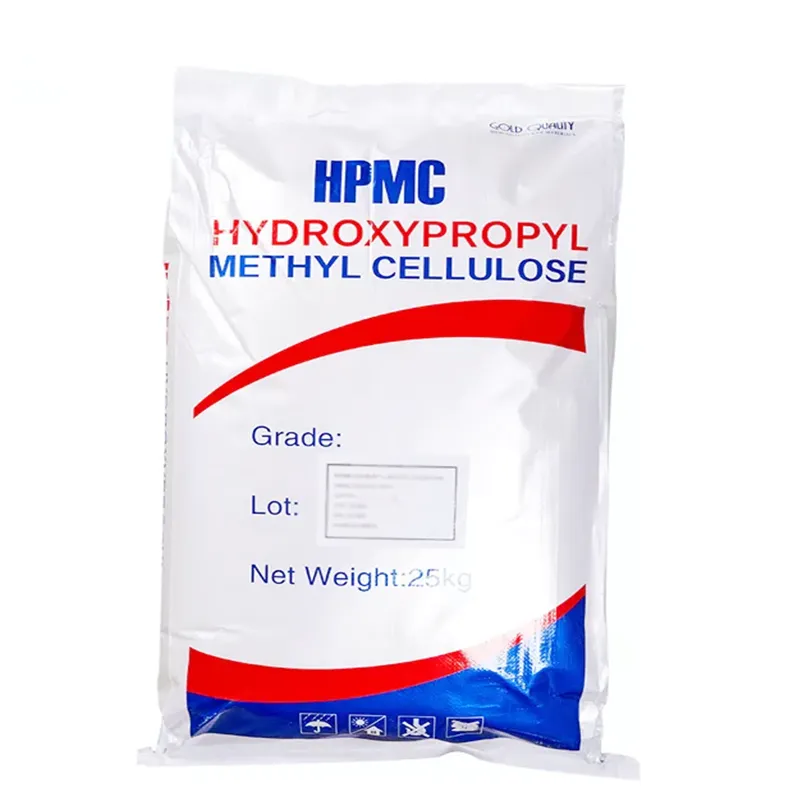
Hydroxypropyl Methyl Cellulose - Hebei Tangzhi Technology | Thickener, Water Retention
What is Hydroxypropyl Methyl Cellulose (HPMC)?
Hydroxypropyl Methyl Cellulose (HPMC), also known as CAS 9004-65-3, is a high-performance multifunctional thickener and stabilizer derived from natural cellulose. This non-ionic cellulose ether is widely used in construction, medicine, food, and daily chemical industries due to its exceptional properties. HPMC is available in two types: hot-dissolving and instant-dissolving, each tailored for specific applications.
Key Features and Advantages of HPMC
- Excellent Thickening Effect: Enhances viscosity in surfactants and other formulations, ensuring smooth application and stability.
- Superior Water Retention: Prevents rapid drying and cracking in mortars, coatings, and adhesives, extending working time.
- Strong Bonding Properties: Improves adhesion in construction materials, reducing slippage and enhancing durability.
- Thermal Stability: Maintains performance under varying temperature conditions, ideal for hot-melt applications.
- Non-Toxic and Safe: Odorless, tasteless, and non-irritating, making it suitable for pharmaceutical and food-grade use.
Technical Specifications Table
| Item | Range |
|---|---|
| Hydroxypropyl Content | 7-12% |
| Methoxy Content | 22-28% |
| Ash | ≤5% |
| Viscosity | 20,000-200,000 mPa·s |
| pH | 5-8 |
| Moisture | 5±2% |
| Gel Temperature | 60-75°C |
| Density | 350-450 g/cm³ |
Applications of HPMC in Various Industries
1. Construction Industry
HPMC for Gypsum improves the workability of plaster, enhances anti-vertical flow properties, and ensures uniform surface coating. HPMC also prolongs the working time of mortar, resulting in high mechanical strength during solidification.
2. Adhesives and Coatings
HPMC for Adhesive ensures easy mixing of dry ingredients, reduces lumps, and improves adhesion. Its water retention properties enhance the efficiency of brick pasting and reduce construction costs.
3. Mortar and Cement Applications
HPMC for Mortar provides viscosity, prevents sedimentation, and improves fluidity for efficient paving. It also controls water retention, minimizing cracking and ensuring durable results.
4. Wall Putty and Insulation Mortar
HPMC for Wall Putty enhances water retention, reduces shrinkage, and improves surface quality. For HPMC for Exterior Wall Insulation Mortar, it strengthens adhesion to walls and eliminates micro-cracks, creating a smooth finish.
Production Process of HPMC
- Raw Material Preparation: High-quality methyl cellulose and propylene oxide are selected, ensuring compliance with production standards.
- Reaction Process: The raw materials are mixed under controlled temperature and pressure, with catalysts facilitating the etherification reaction.
- Refining Process: Crude HPMC is centrifuged, washed, and dried to remove impurities and unreacted chemicals.
- Packaging and Storage: The final product is packed in multi-layer paper bags (25 kg net weight) and stored in cool, dry conditions to maintain quality.

About Hebei Tangzhi Technology Co., Ltd.
Established in Hebei, China, Hebei Tangzhi Technology Co., Ltd. is a leading HPMC manufacturer with a 140,000 m² factory and 90,000 m² production area. Strategically located 260 km from Beijing, the company benefits from excellent logistics access via highways and ports. With an annual production capacity of over 40,000 tons, Tangzhi offers competitive HPMC prices without compromising quality.
HPMC vs. HEC: Key Differences
Hydroxyethylcellulose (HEC) and HPMC are both cellulose derivatives, but they differ in applications. HEC excels in film formation and clarity, making it ideal for cosmetics, while HPMC offers superior water retention and is preferred in construction and pharmaceuticals. For detailed comparisons, visit our HPMC FAQ section.
HPMC in Skincare and Personal Care
HPMC is widely used in skincare products for its moisturizing and film-forming properties. It enhances the texture of creams and lotions, retains moisture, and provides a smooth finish. Its non-irritating nature makes it suitable for sensitive skin formulations.
Why Choose Hebei Tangzhi Technology?
- Comprehensive Product Range: HPMC, MHEC, PVA, RDP-VAE, and more.
- Global Reach: Efficient logistics to serve clients worldwide.
- Commitment to Quality: Adherence to international standards and rigorous testing.
Contact us today to buy HPMC or learn more about our HPMC suppliers services.
Authoritative Citations and References
For industry standards related to HPMC, refer to the National Institute of Standards and Technology (NIST) for technical specifications and research. While the provided NIST link is currently unavailable, you can explore their resources at https://www.nist.gov/ for detailed guidelines on chemical standards.
-
Reliable Powdered Cellulose Supplier: Quality, Sustainability & InnovationNewsNov.24,2025
-
Find Trusted Microfibrillated Cellulose Suppliers for Sustainable Industrial SolutionsNewsNov.24,2025
-
Leading Methocel Suppliers: Quality, Innovation & Sustainability in Methylcellulose SupplyNewsNov.23,2025
-
Reliable Hydroxyethylcellulose Suppliers for Industry & Sustainability | Tangzhi HPMCNewsNov.23,2025
-
Top Ethyl Cellulose Supplier – Quality, Sustainability, and Industrial SupportNewsNov.23,2025
-
Trusted CMC Powder Suppliers for Food, Pharma & Industrial Use | Tangzhi HPMCNewsNov.22,2025





















